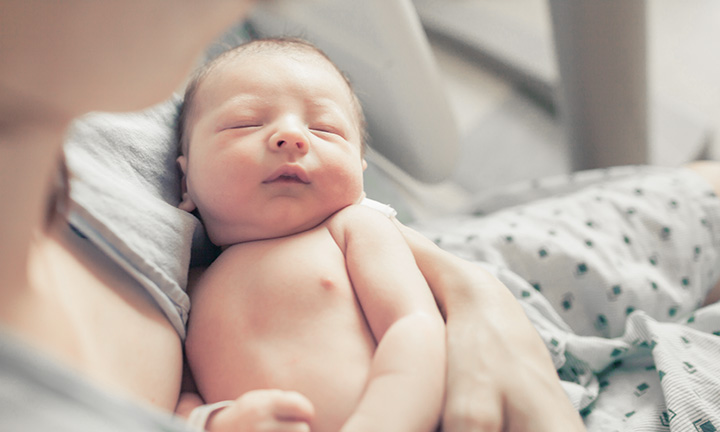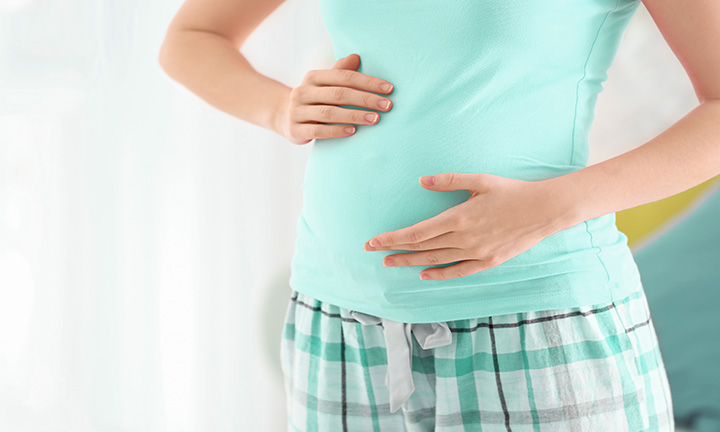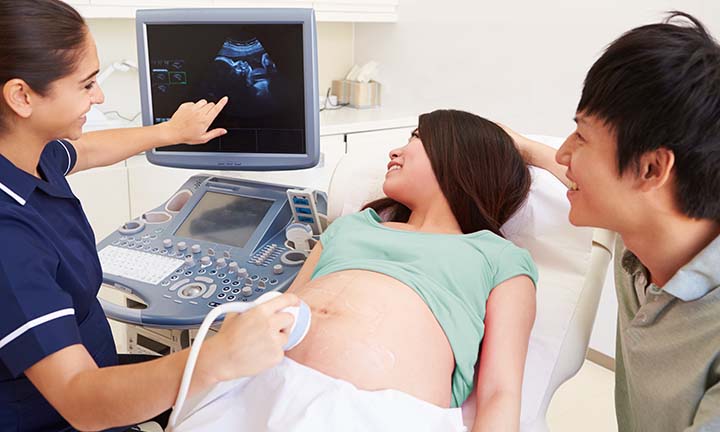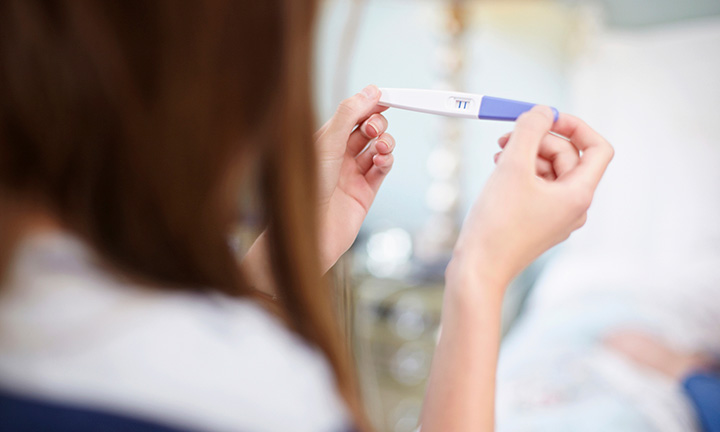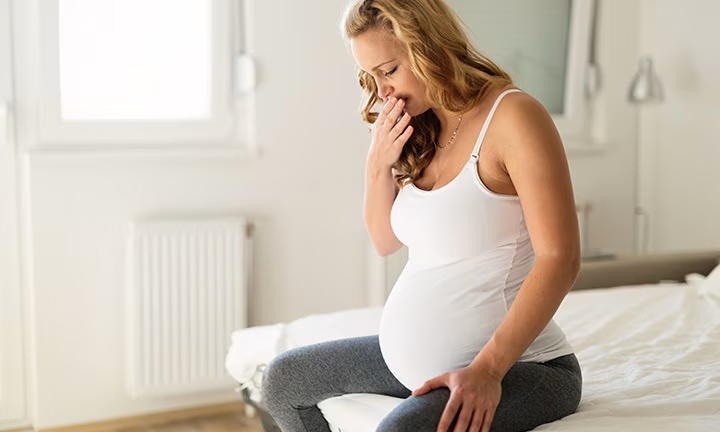
When Does Morning Sickness Start and How Long Does It Last?
You’ve probably heard of morning sickness already. Nausea and vomiting are common during early pregnancy – so common that an unexpected bout of vomiting is often used in films and TV shows as the first indication that a character may be pregnant.
Still, the reality might take you by surprise. That queasy feeling! Everything seems to bring on nausea – certain smells, the sight of your breakfast, even the thought of food.
If this sounds familiar, you may be asking yourself how long this feeling will last, when does morning sickness start and end, what causes it, and what foods or remedies could bring relief. Read on to find out.
What Is Morning Sickness?
Nausea, sometimes accompanied by vomiting, is a common symptom of early pregnancy. It affects around 8 out of 10 pregnant people in the first trimester.
Despite being called ‘morning sickness’, the symptoms can strike any time of the day or at night, and some mums-to-be feel sick all through the day.
Although nausea and vomiting during pregnancy can be unpleasant, it’s usually nothing to worry about and generally only lasts until around the start of the second trimester.
In fact, it may help to think of it as a reassuring sign that your pregnancy is progressing normally.
When Does Morning Sickness Start in Pregnancy?
Morning sickness usually starts sometime between 4 weeks and 7 weeks of pregnancy and may be at its worst over the first 12 weeks. It's important to note that the exact timing and experience can vary, and when it comes to common myths, some may wonder ‘When does morning sickness start with a girl’? or ‘When does morning sickness start with a boy’? however, the onset is not necessarily linked to the baby’s sex. In fact, your baby’s sex generally has no link to morning sickness at all.
Bear in mind that the time when morning sickness starts may vary for each pregnant person and can also differ between pregnancies. Additionally, some pregnant people may never experience morning sickness at all.
If you’re not sure how far along you are in your pregnancy, you can find out an estimate by using a Due Date Calculator.
What Causes Morning Sickness In Pregnancy?
Experts aren’t quite sure what the cause of morning sickness is, but it’s thought that nausea and vomiting of morning sickness are your body’s response to hormonal changes that occur during early pregnancy, especially the higher levels of oestrogen and the pregnancy hormone hCG.
Pregnancy is the only time your body produces hCG, so it’s no coincidence that this hormone is also what home pregnancy tests detect in your urine to determine whether you’re pregnant.
Although hormonal changes are believed to be the main cause, there may be other factors that increase your chance of experiencing this early symptom of pregnancy.
You may be more likely to get morning sickness if you
What Does Morning Sickness Feel Like?
Many would describe morning sickness as a queasy feeling that may come with or without nausea and vomiting. It can vary from person to person, but typically, it involves a sensation of discomfort in the stomach, often accompanied by the urge to vomit. What does morning sickness feel like without vomiting? For some, it's simply a constant feeling of nausea that doesn't necessarily lead to vomiting.
You might assume that with a term such as ‘morning sickness’, it would suggest that symptoms of queasiness and nausea occur solely in the morning. Regrettably, this is a misconception — morning sickness can actually happen at any point during the day. Moreover, it may appear and disappear intermittently throughout the day or persist for the entire day.
Most pregnant people may experience a period of feeling unwell for a brief time each day, which may include vomiting once or twice. However, it's important to note that every expectant parent’s experience is distinct, and the symptoms you encounter in early pregnancy are unique to you.
There is also a severe form of morning sickness known as hyperemesis gravidarum. It’s thought that around only 1 to 3 in every 100 pregnant people experience this severe condition. The cause of extreme sickness during pregnancy remains unknown. However, there is a possibility that individuals with a family history of this condition are more likely to experience it. Furthermore, if you had severe sickness during a previous pregnancy, you are more likely to experience it again in your next pregnancy. For this type of morning sickness, your doctor may prescribe medication to treat the nausea and vomiting.
When Does Morning Sickness End?
According to experts, around 70 to 80 percent of pregnant people experience morning sickness in their first trimester, so when does it usually stop and when will you see the end of that pregnancy nausea? Most find that their symptoms usually go away in the second trimester, sometime around 16 to 20 weeks.
How Long Does Morning Sickness Last?
Every pregnancy is unique, but for some pregnant people, morning sickness can last for up to several months. For some individuals, morning sickness symptoms may last longer or throughout their entire pregnancy.
Is It Common to Not Have Morning Sickness?
Around 15 to 30 percent of pregnancies do not experience morning sickness at all, and it doesn’t mean anything is wrong. Every pregnancy is different. However, if you’re concerned about how your pregnancy is progressing, speak to your doctor or midwife.
The Best Foods and Remedies For Morning Sickness
There’s no surefire treatment for morning sickness, so you may have to try several of the different dietary and lifestyle changes below to see if any of them bring relief.
If none of these seem to help and you’re finding it hard to cope with the nausea, ask your midwife or doctor for advice.
The good news is that your morning sickness will usually clear up by itself by the time you’re about 16 weeks to 20 weeks pregnant.
Until then, try some of these remedies and foods for morning sickness relief:
Is Morning Sickness a Good Sign?
Some pregnant people consider morning sickness as a good sign, despite the unpleasant queasiness and vomiting. It can be a reminder that they are actually pregnant and their pregnancy is on track. And there is some research that supports this point of view. Be sure to reach out to your doctor or midwife if you have any questions about morning sickness or about any aspect of your pregnancy.
Can Morning Sickness Harm Your Baby?
Mild or moderate morning sickness typically isn't detrimental to either you or your baby. Nevertheless, if you begin to struggle with retaining food and fluids, it could result in dehydration and/or weight loss.
This can prevent you from obtaining the nutrition you require during your pregnancy to nourish both yourself and your baby, and it may impact the birth weight of your infant.
Contact your doctor or midwife if you’re having trouble keeping food and water down.
When to Contact Your Doctor
Call your doctor or midwife if:
FAQS AT A GLANCE
Morning sickness can start as early as 4 to 7 weeks into pregnancy, but this can vary from person to person. The first trimester is the most common time to experience nausea and vomiting.
The Bottom Line
Morning sickness can start early in your pregnancy, often between 4 and 7 weeks, and typically doesn’t last past your first trimester. However, your particular experience may be different, as each pregnancy is unique. If you're wondering when does morning sickness start or when does morning sickness end, it's important to note that these timeframes can vary.
Morning sickness is a very common pregnancy symptom, and it can occur at any time of the day, not solely in the morning. The encouraging news is that consuming items like salty crackers and sipping ginger tea throughout the day may be beneficial.
If you notice that you're dehydrated or losing weight, or if your symptoms are particularly severe, it's best to call your doctor or midwife so that you can get advice and treatment.
Fortunately, many expectant parents discover that morning sickness usually goes away in the second trimester. Meanwhile, if you're struggling with morning sickness, try to see it as a reminder that you're nurturing a new life, and converse with your doctor or midwife for tailored guidance and support.
Read more about Pregnancy
Join Pampers Club and get:


